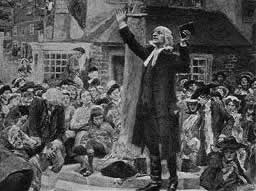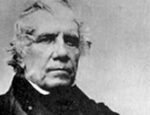Description
 Consider the classical rhetorical training which John Wesley, one of the founders of Methodism, encouraged his preachers to undertake. At Oxford, Wesley, who himself read the classical languages fluently, had studied Ciceronian oratory and its presentation in neoclassical handbooks. But he was convinced that his preachers, many of whom had hardly any previous education, would benefit from hands-on training, often in the open-air, in the principles of classical rhetoric, and enthusiastically supervised them himself; he encouraged them to learn Greek and Hebrew, the languages of the bible, as he did the miners’ and preachers’ children educated at Kingswood, the school he founded near Bristol. But he also insisted that the preachers learn, from the Dutch scholar and theologian Gerard Vossius’ introduction to Aristotelian rhetoric, the fundamental classical oratorical precepts of deportment, appropriateness, sublimity, force, relevance, simplicity, and brevity etc.
Consider the classical rhetorical training which John Wesley, one of the founders of Methodism, encouraged his preachers to undertake. At Oxford, Wesley, who himself read the classical languages fluently, had studied Ciceronian oratory and its presentation in neoclassical handbooks. But he was convinced that his preachers, many of whom had hardly any previous education, would benefit from hands-on training, often in the open-air, in the principles of classical rhetoric, and enthusiastically supervised them himself; he encouraged them to learn Greek and Hebrew, the languages of the bible, as he did the miners’ and preachers’ children educated at Kingswood, the school he founded near Bristol. But he also insisted that the preachers learn, from the Dutch scholar and theologian Gerard Vossius’ introduction to Aristotelian rhetoric, the fundamental classical oratorical precepts of deportment, appropriateness, sublimity, force, relevance, simplicity, and brevity etc.
This systematic approach was expertly accommodated to the non-university education of most of his preachers, which had important implications for the challenge to class hierarchies that Methodism presented. The preachers developed brilliantly honed techniques in public speaking, through oral, practical training, but applied them in the simple language of working-class people. This fusion of classical method and contemporary verbal medium goes a long way to explaining the staggering success of the first Methodist preachers, who were an important impetus behind the rise of Trade Union oratory a few decades later. The Duchess of Buckingham (1680-1743) was appalled, writing to the Methodist Countess of Huntingdon in 1742 to complain about these politically ‘levelling’ preachers, ‘Their doctrines are most repulsive and strongly tinctured with impertinence and disrespect towards their Superiors, in perpetually endeavouring to level all ranks and do away with all distinction. It is monstrous to be told you have a heart as sinful as the common wretches that crawl on the earth’.




